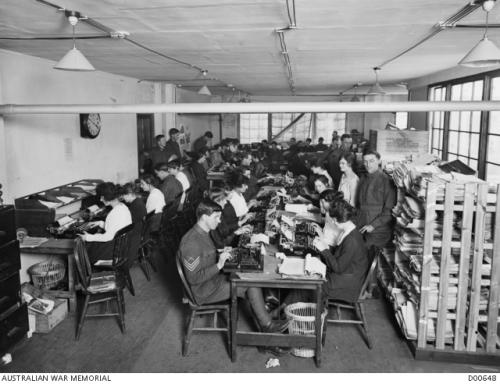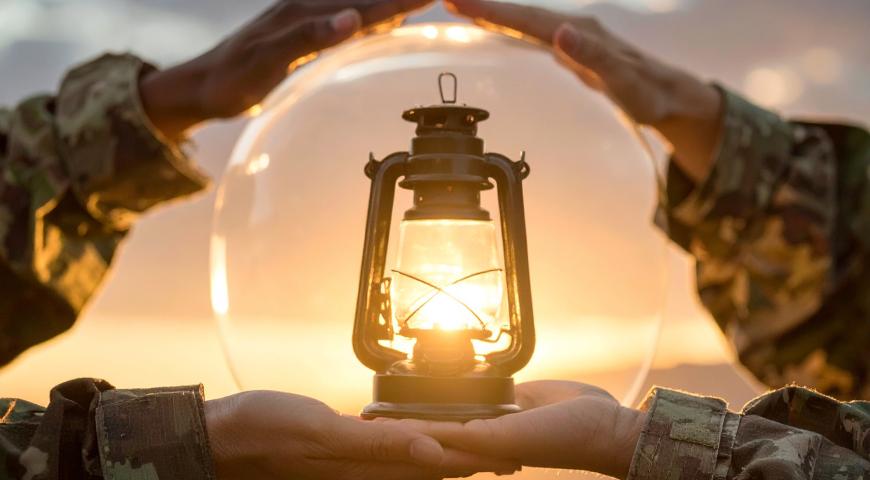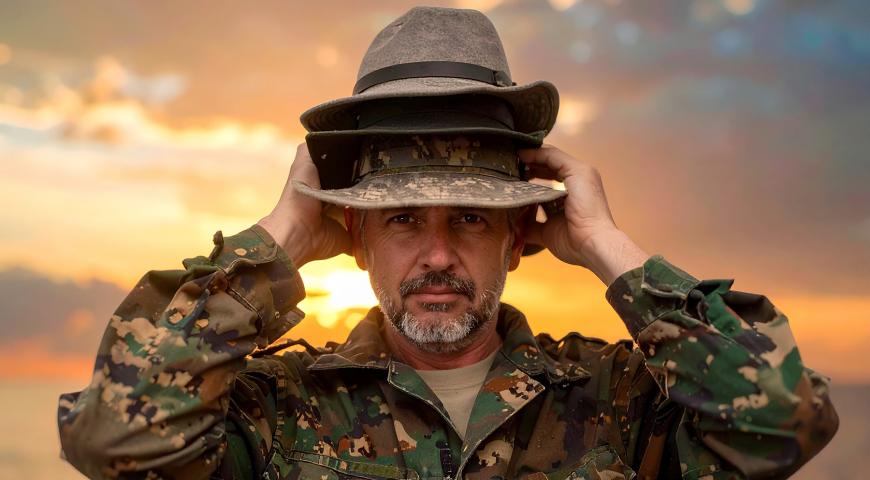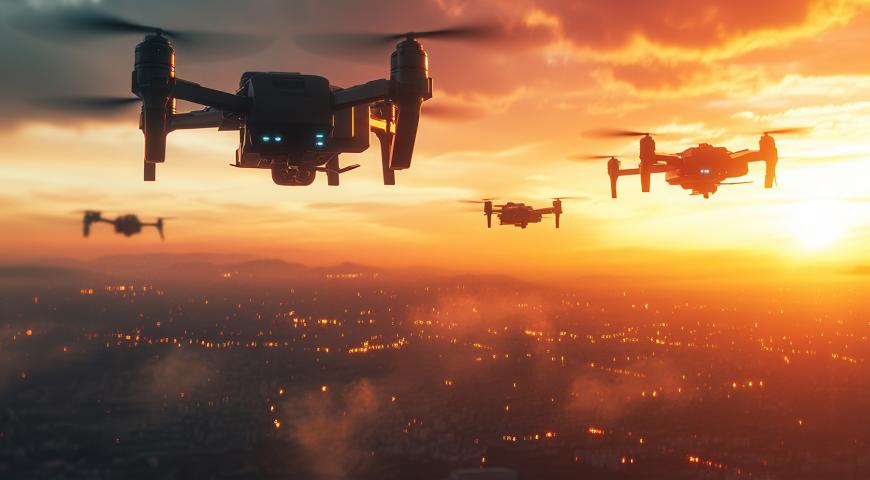
Image courtesy Australian War Memorial
Intellectual Preparation for War – It’s a Team Event
Clare O’Neill
“To each there comes in their lifetime a special moment when they are figuratively tapped on the shoulder and offered the chance to do a very special thing, unique to them and fitted to their talents. What a tragedy if that moment finds them unprepared or unqualified for that which could have been their finest hour’ ― Winston Churchill
Professional mastery brings to bear the physical, intellectual, and moral components of fighting power within violent and interactive environments for political purpose. It is daunting to even attempt ‘mastery’ when our role is to prepare for unknown contingencies. ‘Mastery’ will always be elusive when the character of warfare is in constant flux and strategic competition ignores traditional boundaries of peace and war. ‘Disciplined intellectual preparation’ as advised by Williamson Murray, is therefore key to enabling ‘those at the sharp end with the means to handle the psychological surprises that war inevitably brings’.[1]
This is where creating an environment for networked writing contributes to our intellectual preparation for unknown contingencies. Individual writing helps us think through complex challenges and writing for others holds us accountable for our opinion, strengthening our thinking in the process. Military writing ‘for and with’ the team helps create people-networks who share lessons quickly and who contest ideas to strengthen military concepts. In doing so, military writing becomes a team event.
The first place we contest ideas cannot be on the battlefield. When military writing is a team sport, our ideas are toughened through collective debate and our eyes opened to new possibilities. Having a culture of sharing lessons and learning from each other is an essential tool for teams whether they are in barracks or on operations.
Writing for intellectual preparation
Writing reinforces intellectual preparation for the unknown. Writing helps prepare for the ‘psychological surprises’ ahead and helps keep pace with the changing character of competition and warfare. Writing propels individual thoughts into collaborative environments where they are shared and strengthened, as well as simultaneously launching ideas into competitive environments where they are questioned and challenged. Sharing ideas empowers connections and can break down stove-piped thinking, while questioning and challenging ideas enables adaptation and strengthening of original thought.
Verbally discussing ideas has its place; however, it is important to take the next step and put pen to paper. As E.M. Forster outlines ‘How do I know what I think until I see what I say?’[2] Arming ourselves with history and an appreciation of ambiguity and uncertainty enables us to argue, debate, and provide evidence in order to make tough decisions. Trepidation of criticism must be overcome as strengthening ideas and sharing identified lessons is a duty within the profession of arms. As said by Doctrine Man: “What you give back to our professional body of knowledge matters. It makes a difference. And if we're not here to make a difference, why are we here?”
Writing as a team event
It could be easy to think that writing is an individual activity; however, writing enables collective outcomes for sharing, learning, and improving our acumen for strategic competition and fighting power for warfare. Fostering the habit of sharing ideas in peacetime builds the environment for this practice to become a foundation to share and strengthen identified lessons for learning and adaptation in war. This is a team event, not an isolated activity. We all have experiences to share and lessons that help our immediate team and teams beyond our chain-of-command.
Sharing ideas with other serving members can sometimes resemble a collective echo chamber due to our similar backgrounds, training and experiences. It is here that writing and then sharing these ideas through public forums allows us to engage with cognitively diverse groups who think differently and have divergent views. Writing outputs are strengthened through such an approach.
Digital media allows military personnel to use readily available platforms (smart phones, tablets etc) to share writing across networks including global military partners and allies. Digital media also allows stove-piped discussions to expand beyond the echo chamber of messes and units. Ideas can be utilised from outside the military environment and then adapted for fighting power application. These military writing networks also have the power to become influence swarms in competition and conflict.
I note here that military writing should find its right home, and this may not always be on open forums. Publishing on public forums will help strengthen ideas beyond the military network; however, secure forums enabled through official channels when public comment and security must be maintained are equally valid. Having multiple platforms to publish and share ideas – official, unofficial, secure and public – is key to getting the right balance and having robust networks in place across multiple means to share lessons quickly, thus bringing our intellectual and cognitive power to the fight.
Intellectual preparation means that just when you think you have mastered something, the standards change as the threat, technology, operating environments and the character of warfare evolves. This is particularly relevant when change is accelerating at pace. As the saying goes, ‘the enemy gets a vote’ and threat actors will continuously challenge set benchmarks of ‘mastery’. Writing down our thoughts helps bring clarity to chaos and sharing our thoughts with others helps the team see further through the fog of ambiguity.
Grounded Curiosity – an Australian experience
I was very fortunate to see the power of ‘writing as a team event’ through meeting Nate Finney and Joe Byerly at the inaugural Defense Entrepreneurs Forum in 2013. Nate and Joe’s endeavours of The Strategy Bridge and From the Green Notebook enabled an environment for collective intellectual preparation instead of individual development in isolation. The power of writing was amplified by creating environments where writing became a team activity; enabling impromptu mentoring through the editing process, and informally networking people across services and domains to strengthen ideas and break-down stovepipes.
There were no unofficial public websites run by uniformed personnel to share military ideas for intellectual preparation in Australia in 2013 in the same way that was occurring in the United States. The environment for serving personnel to share ideas publicly was also generally frowned upon. We relied on journals and one official blog which had lengthy lead-times. These remain valuable tools. Their strength was and is in peer-review, but they lacked speed for lessons-sharing and ground-up network formation.
Military personnel also sat through official briefs outlining all the reasons why they should not use blogs and social media. These were valid reasons as security and public comment restrictions need to remain at the forefront of our minds when using these open platforms. However, these briefs were one-sided, only outlining the ‘why not’ without outlining the opportunities to use these collaborative platforms for professional development which could be done within the security and public comment boundaries.
My personal journey of ‘why we write’ therefore became a journey to create an environment for others to write, collaborate, share, and learn; with the aim to help strengthen our intellectual preparation for fighting power. As such, Grounded Curiosity was born in 2013, the result of a desire for an online forum in which junior military leaders could broaden their professional horizons and promulgate discussion and ideas beyond the confines of their immediate workspace. The intent was, and remains, to generate discussion that supports and engenders both the development of junior leaders and the ongoing innovation crucial to an Army poised for accelerated warfare.
With the advent of many new professional development sites since 2013, Grounded Curiosity has evolved to become a site run by a team of uniformed members with a focus on junior leaders (including Officer Cadets, Lieutenants, Captains and a ‘junior-in-spirit’ Warrant Officer). It allows these junior leaders to attempt new ideas and new mediums through an established brand. This new format, where ‘back of house’ activities empowers others, is designed to help our culture of learning and sharing to become the norm. We need these networks and skills for competition and war.
The name ‘Grounded Curiosity’ was not a grab at a new buzzword or idea. Rather, it was the amalgamation of the two crucial concepts that fomented Grounded Curiosity’s inception and underpin its ongoing aims.
Curiosity is the exploration of ideas and never-ending pursuit of professional mastery while acknowledging the risk of paralysis by analysis. As practitioners, this curiosity can progress ideas to practical implementation. Curiosity can breathe fresh ideas into a stagnant organisation and underpins our ability to adapt faster than the enemy.
The term ‘grounded’ aligns to looking ‘ground up’ to link tactical action to strategy, while being ‘grounded’ also implies that disruptive ideas are nuanced with practical realities. Grounding theoretical ideas is vital as we learn from the past and grapple with the future. The catch is, we’ll only be able to ground those good ideas if we’re curious about them in the first place.
Grounded Curiosity is just one of many initiatives helping create an environment for writing as a team event for the profession of arms. The site continues to be inspired by others and is now part of a layered approach in Australia with other writing initiatives including The Cove, Central Blue, Logistics in War and The Forge.
I am very proud of this network and continue to capture new initiatives in this Prezi. The layering of these different initiatives gives a voice to specialist areas while creating an environment to network between the sites to share ideas. However, public forums (official and unofficial) are only part of the solution and don’t provide all the answers – they need to be equally matched by free-flowing information lessons sharing on our secure systems – something I think we should invest much more time and energy in to share secure lessons and ideas across operating environments, domains and other elements of national power.
Just as intellectual development does not stand still, so must our undertaking to evolve the environment for pragmatic and fearless writing. It is here that keeping pace ‘to handle the psychological surprises that war inevitably brings’ is paramount to bring to bear our fighting power for our ‘finest hour’. With strategic competition on our doorstep, we need to be just as good at it in barracks as we are on the battlefield.
Technical Mastery
Social Mastery
Please let us know if you have discovered an issue with the content on this page.
Comments
Start the conversation by sharing your thoughts! Please login to comment. If you don't yet have an account registration is quick and easy.




